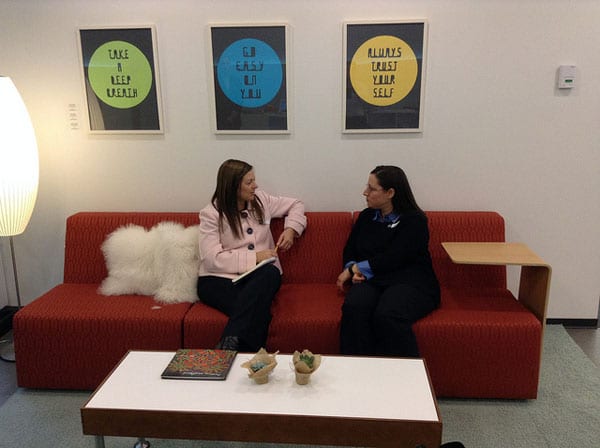
November 17, 2018; Tennessean
Peer support networks are one of the more overlooked and undervalued pieces of infrastructure needed by those with serious mental illness. Just ask 24-year-old Lauren Clements, who has been hospitalized 18 times, what she thinks about the statewide Tennessee Mental Health Consumers Association. “You form such amazing bonds with these people,” she says. “You feel so understood, and it’s such a wonderful experience. I remember one time one of the nurses said, ‘It’s the patients who help more than we do.’”
More than 11,000 people with mental illness make use of the TMCHA network every year for its supportive relationships, support groups, self-help programs, and wellness plans, all of which fill in crucial gaps in a mental health system that ends at the front doors of clinics and hospitals.
“That’s the big problem that’s always talked about,” says Anthony Fox, executive director of the Tennessee Mental Health Consumers’ Association. “We always hear the people go back so quickly because they don’t have support.” This statewide program, on the other hand, pairs individuals with mental health problems with peers who have similar life experiences. Those peers also work within the Tennessee Mental Health Institute to forge relationships before discharge and facilitate or co-facilitate groups on the implications of a particular diagnosis and other related issues.
The Hogg Foundation has long advocated for peer support networks as a cornerstone of a strong mental health system. Writing in a policy brief, the foundation says,
According to the Centers for Medicare and Medicaid Services (CMS), “peer support services are an evidence-based mental health model of care which consists of a qualified peer support provider who assists individuals with their recovery from mental illness and substance use disorders.” Certified peer specialists are approved providers of mental health rehabilitative services under the Texas Medicaid program. Currently, mental health rehabilitative services are authorized through the LMHAs. Consequently, LMHAs and their subcontractors are the only entities that have access to Medicaid reimbursement for peer support services.
Peer support services are not intended to replace other mental health services, but the frequency of other services can be reduced when an individual is supported by a peer, often resulting in lower costs and better outcomes. When peer support services are included within the continuum of community care, the mental health system expands quantitatively by reaching more people, and qualitatively by helping people become more independent.
Sign up for our free newsletters
Subscribe to NPQ's newsletters to have our top stories delivered directly to your inbox.
By signing up, you agree to our privacy policy and terms of use, and to receive messages from NPQ and our partners.
And Mental Health America calls peer support an essential part of an effective mental health or substance abuse system.
“They’re that face of hope,” says Stacey Murphy, COO of the Tennessee Mental Health Consumers’ Association, who has her own history with mental illness.
Each patient who agrees to be a part of the network receives a call within 24 hours of discharge and is paired with a peer specialist for 90 days. Murphy says that providing support to get to therapy is a part of what they regularly do. “We tell them, ‘You don’t have to be rehospitalized to access this support in your life.’”
This differs from crisis response. “Tennessee is ahead of the game for its crisis response team,” says Amanda Bracht, senior vice president of clinical services at Mental Health Cooperative, a nonprofit that serves people with serious mental illness. “Crisis response takes care of most acute issues and active suicidal thoughts at the time. What is missing is help for when someone is having serious symptoms but it’s not rising to that crisis level. They need treatment, but they aren’t engaged in treatment until three, four, five weeks later, which seems like forever.”
But the network’s funding is uncertain: After receiving grants to launch a pilot and then to expand the project, and despite a significant effect on rehospitalization rates, a large state grant will disappear this year.
With the professionalization of this sector, some of these tried-and-true approaches have been largely discarded or underemphasized, which makes the systems we build less effective, knowledgeable, accessible, and resilient. Peer networks are best led by those experienced with the issued being addressed. Where supporting peer networks emerge, nonprofits should ask themselves when, where, and how they should work with them.—Ruth McCambridge











